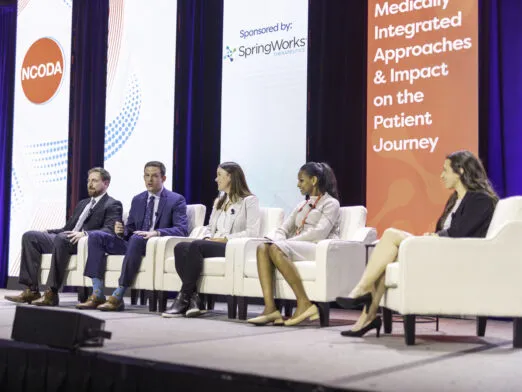Patient Management Strategies for Newly Diagnosed CLL
Published Date: April 15, 2025

Patient Management Strategies for Newly Diagnosed CLL
As the most prevalent type of leukemia that continues to have an increasing global incidence, chronic lymphocytic leukemia (CLL) represents a hematologic malignancy that most oncology health care providers will encounter.1 Appropriate choice of treatment coupled with multidisciplinary supportive and survivorship care are critical to optimizing outcomes for patients with CLL. To better understand the CLL treatment paradigm through the perspective of recognized thought leaders, NCODA members were invited to participate in a survey to obtain their insights into CLL management, including a focus on identifying patients with early signs of resistance or intolerance to current first-line treatments and exploring alternative agents within the same drug class.
A total of 97 NCODA members completed the survey. Responses were anonymously collected, and findings were aggregated into the data reported herein.






